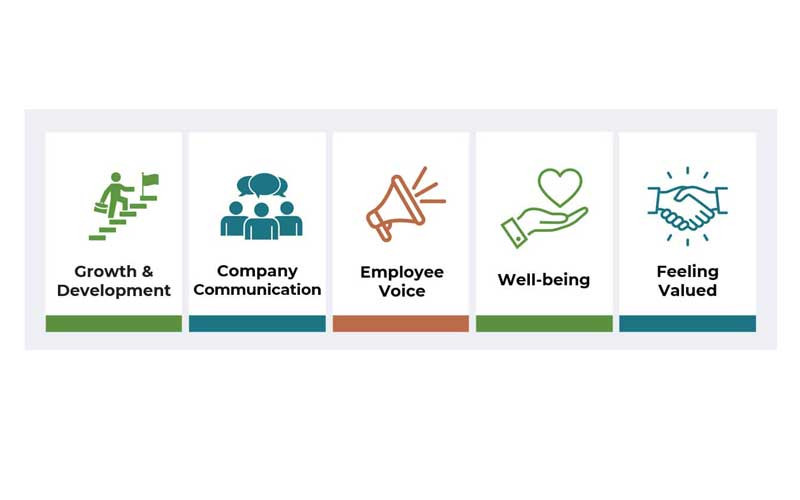
EMPLOYEE engagement is a critical factor in the success of any organisation. Engaged employees are more productive, more creative, and more likely to stay with their employer for the long term.
However, achieving high levels of employee engagement is not always easy. It requires a concerted effort on the part of both employers and employees.
In this article, we will explore some of the key factors that drive employee engagement. The 2024 State of the Global Workplace report paints a concerning picture on employee engagement. While measures of employee engagement and wellbeing are near record highs, their stagnation in 2023 signals a potential crisis.
The report estimates that low employee engagement costs the global economy a staggering US$8,9 trillion, equivalent to 9% of global GDP. The report goes into the factors influencing this trend, focusing on mental health, economic policies, and the pivotal role of managers.
The report underscores the complex interplay between economic conditions, labour policies, and employee wellbeing. Countries with favourable job markets tend to have lower rates of active disengagement, suggesting that employees are more likely to leave unsatisfying jobs when alternatives are available.
The presence of labour protections, particularly those related to maternity, fair wages, and safety, is associated with higher levels of current life satisfaction.
However, employee engagement emerges as the most significant predictor of future life optimism, regardless of labour laws. The "path forward" section in the report emphasises that creating a highly engaged and productive workforce is not accidental; it requires deliberate and sustained effort from organisations.
The report highlights that best-practice organisations, those that consistently achieve high levels of employee engagement, share certain key characteristics:
- Factors that drive employee engagement
Keep Reading
Prioritising manager selection and development: Recognising the critical role managers play in influencing employee engagement, these organisations carefully select managers with strong leadership and people skills. They also invest in ongoing training and development to equip managers with the tools and strategies to coach and inspire their teams. The manager-employee relationship is seen as central to fostering a positive and productive work environment.
Integrating engagement into the employee lifecycle: In these organisations, employee engagement is not a one-off initiative but rather an integral part of the entire employee experience. From hiring and onboarding to performance management and development, engagement is woven into every stage of the employee lifecycle. This creates a culture where employees feel valued, supported, and motivated to contribute their best.
Emphasising wellbeing at work and in life: Best-practice organisations recognise that employee wellbeing extends beyond the workplace. They offer comprehensive wellbeing programmes that address physical, financial, and mental health. This might include providing access to wellness resources, financial planning assistance, and mental health support. By promoting a holistic approach to well-being, these organisations create a work environment where employees feel cared for and empowered to thrive both personally and professionally.
Employee engagement
Meaningful work: The report highlights that when employees find their work and work relationships meaningful, they are more likely to be engaged. This suggests that the nature of the work itself and the sense of purpose it provides can significantly impact engagement levels.
Effective communication and feedback: Great managers provide regular, meaningful feedback and create an environment where employees feel their opinions count. This implies that open communication and constructive feedback mechanisms play a crucial role in fostering employee engagement.
Recognition and growth opportunities: The report also suggests that recognising employees' unique gifts and helping them develop and utilise those talents contributes to higher engagement. This indicates that providing opportunities for growth and development and acknowledging employees' contributions can be powerful motivators.
Positive work environment and teamwork: The reference text includes quotes from employees who appreciate a positive and supportive work environment and the opportunity to collaborate with colleagues towards a common goal. This suggests that a positive workplace culture and strong teamwork can contribute to increased engagement.
Conclusion
Employee engagement is a multifaceted and critical component of organisational success, and achieving high levels of engagement requires a deliberate and sustained effort from both employers and employees.
The 2024 State of the Global Workplace report highlights the complex interplay between economic conditions, labour policies, and employee wellbeing, emphasising that creating a highly engaged and productive workforce is not accidental, but rather requires prioritising manager selection and development, integrating engagement into the employee lifecycle, emphasising well-being atwork and in life, and fostering meaningful work and work relationships.
Furthermore, effective communication and feedback, recognition and growth opportunities, and a positive work environment and teamwork are also essential drivers of employee engagement.
By understanding and addressing these factors, organisations can create a culture where employees feel valued, supported, and motivated to contribute their best, leading to improved productivity, creativity, and retention, and ultimately, driving business success.
- Nguwi is an occupational psychologist, data scientist, speaker and managing consultant at Industrial Psychology Consultants (Pvt) Ltd, a management and human resources consulting firm. — https://www.thehumancapitalhub.com or e-mail: mnguwi@ipcconsultants.com.






